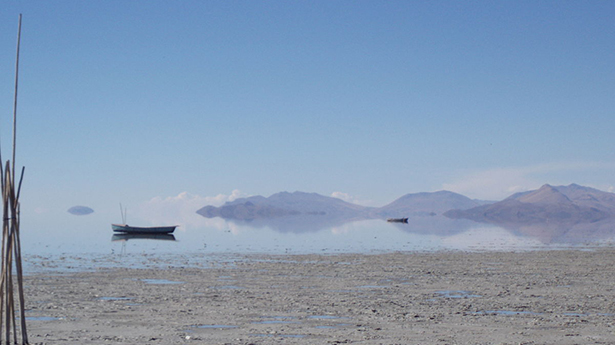Fishing boats used to abound on Lake Poopó in Bolivia’s dry altiplano. The lake was the lifeblood for the Uru-Murato indigenous people, who survived off the lake’s abundant fish and flamingo populations. But years of rising temperatures, poorly planned irrigation techniques, and mining took their toll. The fish died, the water receded, and finally, last December, Bolivia’s second largest lake disappeared into the flat, dry earth.
This astonishing interactive piece by the New York Times documents the tragic impact of mining and climate change on Lake Poopó and the Uru-Murato community that relied on the lake for its livelihood.
Ely Lopez, Global Greengrants’ advisor in Bolivia says:
At present, the problems of indigenous peoples and peasants is so complex—much more than in the past. Despite national and global standards of protection for peoples and their territories, the current extractive development model driven by governments and corporations is very aggressive. It justifies the environmental devastation as collateral damage to the development. In that sense and compared with the total helplessness of the people and their territory, solidarity advocacy and unique voices of resistance are the only real actions that serve these demands.
Lakes in Bolivia’s El Ayllu Punaca region are systematically contaminated by transnational mining projects that fail on environmental protections. Surface and ground water in the area are polluted with lead, zinc, and arsenic, killing off fish stocks and forcing local people to migrate to urban centers in search of clean drinking water and new ways to provide for their families. Women, who traditionally relied on reed handicrafts and arts, have been particularly impacted.
Here are three ways Global Greengrants grantees in the area around Lake Poopó have taken action to prevent further damage to their communities’ health and resources.
1. Exposing mining’s pollution problem
The women-led group Monitores Comunitarios del Agua de Poopó received a $5,000 grant in June to train community members to monitor and evaluate water quality near mining sites. It will use the information to draft reports on the water contamination by the mines and will publish public bulletins to inform 400 local people and authorities. The project will also cover the costs of holding meetings with authorities to review the findings and hold the mining companies accountable for their pollution.
2. Promoting discussion about mining’s impact on women
In 2015, the Colectivo Las Ramonas Revolucionarias used a $4,900 grant to produce and distribute a documentary about the risks women and their families face as a result of contamination by transnational mines. The group shared the film in community spaces, schools, and public venues to promote discussion around socio-environmental problems and gender.
3. Advocating for people’s rights to water, land, and life
Through two grants in 2007 and 2008, the Coordinadora en Defensa de la Cuenca del Río Desaguadero, Lagos Uru Uru y Poopó purchased kits to analyze water quality in the Desaguadero River and Uru and Poopó Lakes. The group also produced an educational video, hosted workshops to strengthen community involvement, and trained local people about environmental management and defense of their legal rights.
Photo by Lovisa Selander

